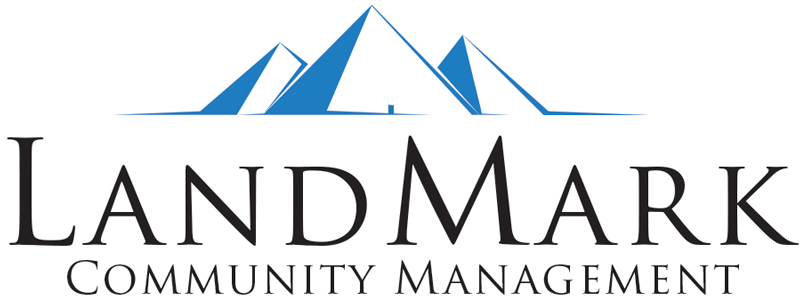Every board must know how to facilitate HOA conflict resolution. This is a big part of managing an association and ensuring a harmonious community. Conflict resolution, though, does not come easy for everyone.
The Importance of HOA Conflict Resolution
A homeowners association is no stranger to conflict. HOA conflicts are only normal in a community with people from different walks of life. And it can arise between neighbors, board members, or both.
Since conflict is a natural part of community living, there is no way to eliminate it completely. However, there is a way to resolve conflicts as they come along – and that is homeowners association conflict resolution.
Conflict resolution, also known as dispute resolution, minimizes animosity and hostility within the association. It can help prevent disagreements from escalating, which results in a safer and friendlier living environment.
With conflict resolution, an HOA board can create a more peaceful community for its residents. This, in turn, keeps homeowner satisfaction high. And who wouldn’t want to buy into a community with happy residents?
How Do You Resolve Conflict With an HOA?
An HOA plays an important role in resolving conflicts within the community. While many associations implement an internal dispute resolution process, seeking alternative dispute resolution (ADR) is also acceptable.
In some states, ADR is even a necessary prerequisite to legal action. That means members must go through ADR before filing a lawsuit to show that other methods were used to resolve the conflict. In Texas, HOAs and homeowners are simply given the option to use ADR services (Texas Property Code Section 209.007).
Alternative dispute resolution can be beneficial to all parties involved in the conflict. Not only does it help the parties reach a compromise, but it is also quicker and more affordable than a lawsuit. Lawsuits can be very time-consuming, taking months or even years to resolve. They’re also more expensive, costing thousands of dollars in legal fees.
HOA Conflict Mediation
With mediation, a trained professional mediates between the disputing parties to settle. The mediator listens to all sides and attempts to reconcile the two parties by helping them reach an agreement or a compromise. The parties, though, are not obligated to settle.
HOA Conflict Arbitration
With arbitration, a trained professional makes the final decision for the disputing parties. The arbitrator will listen to all arguments, examine the evidence, and come to a conclusion. Parties in arbitration must follow the decision of the arbitrator. Moreover, signing an arbitration agreement may require the parties to give up their right to sue, though this is not always true.
Creating an Internal HOA Dispute Resolution Policy
Aside from ADR, it is a good idea for an association to have its internal process for resolving disputes. Here is how you can create your own.
1. Determine If Intervention Is Necessary
For neighbor-to-neighbor disputes, your board should determine whether or not it is even necessary for you to intervene. Sometimes, these types of disputes are resolved on their own. Neighbors often reach an agreement without the help of the HOA.
2. Allow Members to Apply for HOA Conflict Resolution
If a homeowner or board member feels conflict resolution is needed, the HOA should allow them to request one. This usually involves submitting a request in writing. Your board can ask the party to write a formal letter or develop a standard form that residents can fill out. Documenting the requests establishes a paper trail, which can be useful later.
3. Concentrate on the Facts
When resolving conflicts, boards should concentrate on the facts. Although parties can express their emotions during the process, board members should not factor in these emotions. Approach every conflict with an objective mind and a clear perspective. It also helps to have a lawyer present in the room.
4. Adopt a Neutral Position
In HOAs, board members and residents are often neighbors. Thus, it can be hard to separate your ties when resolving conflicts. However, you must remove your feelings from the equation as a board member by adopting a neutral position.
5. Attempt to Reach a Compromise
The overall goal of HOA conflict resolution is to settle with the disputing parties. This can be challenging if neither party wants to budge. However, an HOA board should still do its best to find a middle ground.
6. Put It in Writing and Follow Through

After reaching a settlement, make sure to document it in writing. A formal agreement should clearly indicate the details of the settlement, including the date, time, and signatures of the parties. Your HOA board should also follow up on the status of the agreement to ensure that the parties are fulfilling their end of the bargain.
Of course, the same goes if you fail to reach a settlement. Put it in writing that the disputing parties failed to compromise on their conflict.
HOA Resolution vs Amendment
An HOA resolution is often confused with conflict or dispute resolution, but they are different. Conflict or dispute resolution refers to resolving a disagreement between two or more parties. Meanwhile, an HOA resolution or board resolution is a decision that the association formally passes.
In that case, what is the difference between an HOA resolution and an amendment?
A resolution is a document the board creates to formally memorialize or pass a decision. It generally supports the board’s policies, clarifies provisions within the governing documents, or addresses specific problems in the community.
In comparison, an amendment is a change made directly to an association’s CC&Rs, bylaws, or other governing documents. Amendments usually take longer to make and are more difficult to pass. Most amendments require a vote from the membership, whereas resolutions only need the board’s approval.
The Final Word
As you can see, there are a few ways to resolve HOA conflicts. While alternative forms of dispute resolution are reliable, they can still be costly and time-consuming. It is best to adopt your internal process to help ensure a harmonious community.
Many HOA management companies offer dispute resolution as part of their services. This is where Landmark Community Management comes in. Call us today at 512-569-5527 or contact us online to learn more!


